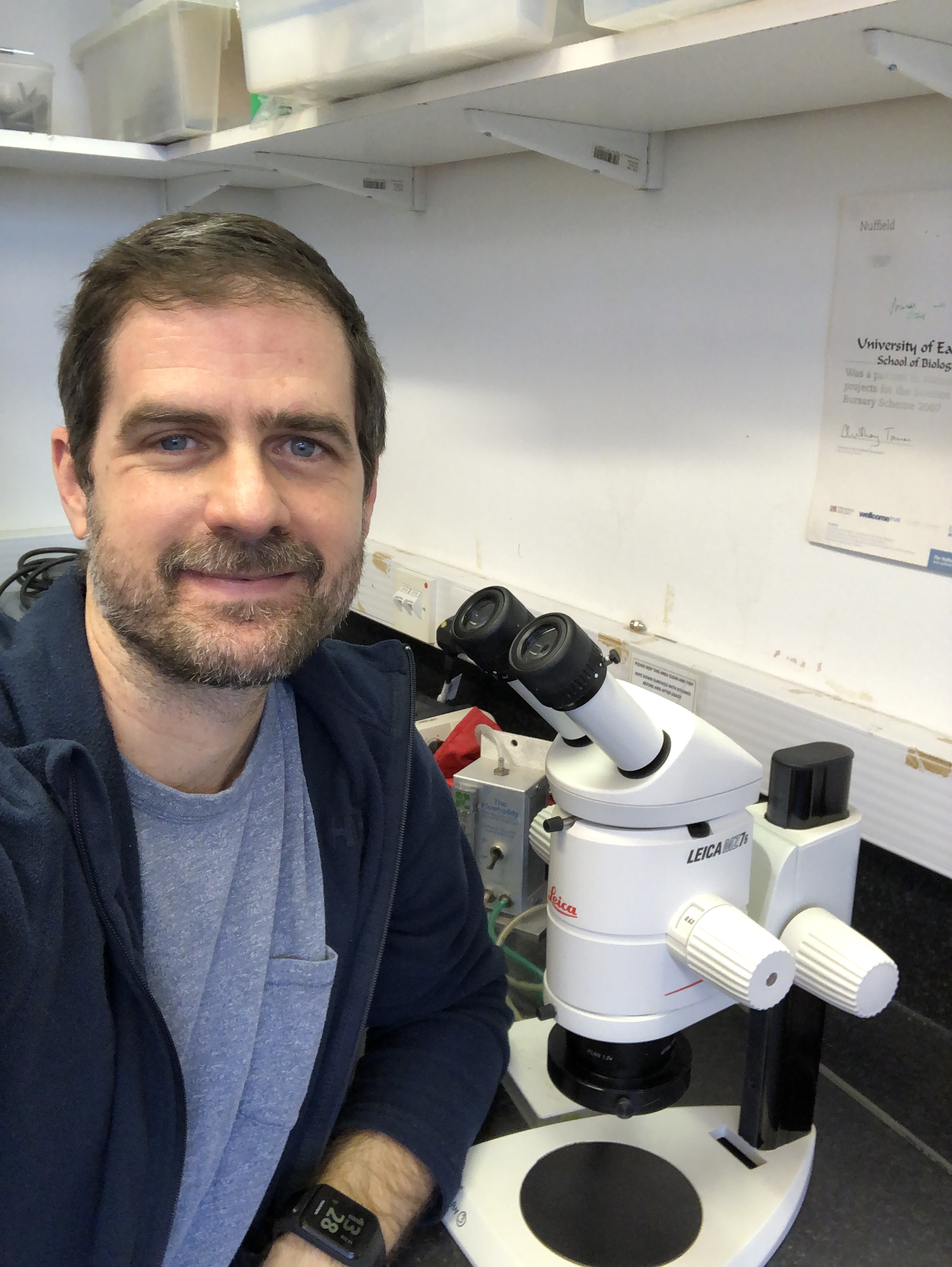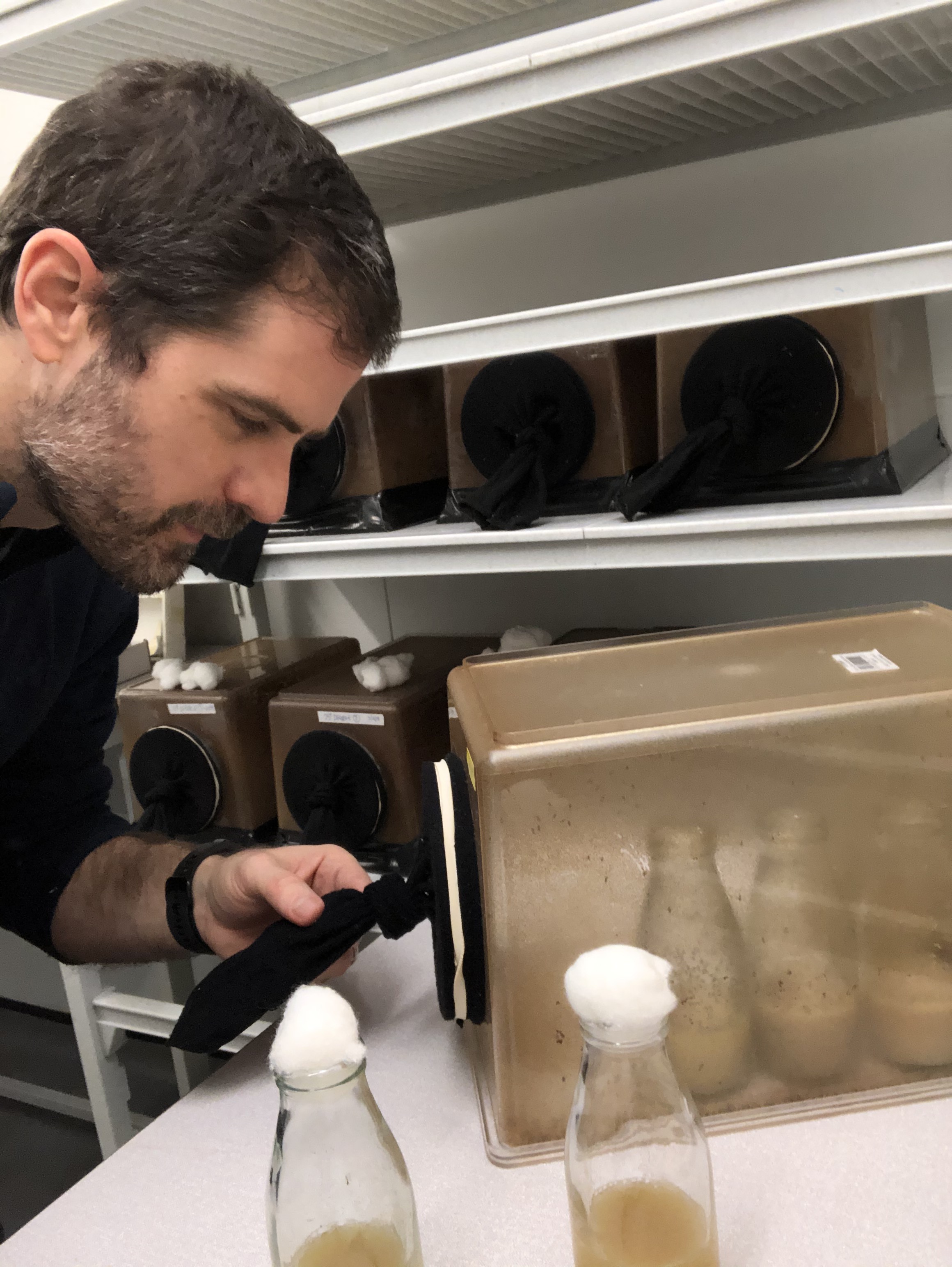We are looking back on some of our MSc graduates who have excelled in scientific research, ecology and conservation around the world since studying with us.
Today we meet Wayne who graduated from MSc Evolutionary & Behavioural Ecology in 2009 and is now a Senior Research Associate at the University of East Anglia.

Wayne, it’s been over a decade since you studied with us, why don’t you tell us a bit about your career in that time that led you to where you are now?
Following my MSc at the University of Exeter I was fortunate enough to be accepted on to a PhD programme in the same place. Immediately prior to submitting my PhD thesis at Exeter I received a job offer for a one-year post-doc in Professor Tracey Chapman’s lab at the University of East Anglia. This led to two further research grants from the NERC and a total of more than 8 years working as a research associate here at the University of East Anglia.
We are so pleased you have had such great opportunities, what attracted you to study your MSc at the University of Exeter, Penryn Campus?
The University of Exeter had a fantastic reputation as a seat of learning and was rapidly climbing the rankings in terms of academic excellence and student satisfaction. The MSc Evolutionary and Behavioural Ecology uniquely catered to my research interests. It didn’t hurt that the campus was in a beautiful part of the world and the CEC home to excellent scientists. Similarly, once I was given the opportunity, staying on to complete a PhD was a no-brainer!
What did you enjoy most about studying in Penryn?
I will always look back fondly on my time studying at Tremough. The department was a warm and stimulating environment. Being able to live in such a wonderful part of the country with its varied landscape and accessible wilderness, maritime beauty and idyllic charm was truly a privilege. I am sure I failed to fully appreciate its essence, given my relatively brief presence.

We are glad you love it as much as we do! How do you think the MSc helped to prepare you for your career?
The taught modules during the MSc were expertly administered by world-class scientists and I enjoyed the research-led nature of the lectures and field course. The experience thus gained helped in no small part to prepare me for the PhD. During the doctoral programme I was able to draw on the knowledge and mentorship of not only my excellent supervisory panel, but the wider group of fellow students, researchers and support staff who were always approachable and helpful. In addition to the more formal skills of CV writing, oral presentations etc I learnt about the importance of networking and marketing oneself. If I hadn’t asked the right questions of the right people when I had the opportunity, I doubt I’d have made it this far!
Why did you choose your career path?
Being a scientist feeds an insatiable curiosity about the natural world. Like any other career there are tedious bits that demand a certain tenacity, but scientific research is full of potential to shake things up, change direction, see something new and ultimately to contribute to a grand human endeavour in a way that is direct and palpable. Career-wise, I’d like to continue working in research.
Finally, do you have any advice for students looking to pursue a similar career?
Be curious. Also, prepared for repeated challenges that may look like failure but are the iterative process of enquiry! Enjoy the ride, but also think carefully about a plan B.
Every step up the ladder in academia gets narrower. There are many routes in and out of science and many of the skills/ experiences you acquire along the way are eminently transferrable to other career paths.
Thank you Wayne!
If you want to read more profiles from MSc Evolutionary & Behavioural Ecology graduates follow this link or explore our Graduate in Focus homepage to learn more about the degree programmes we have on offer!

